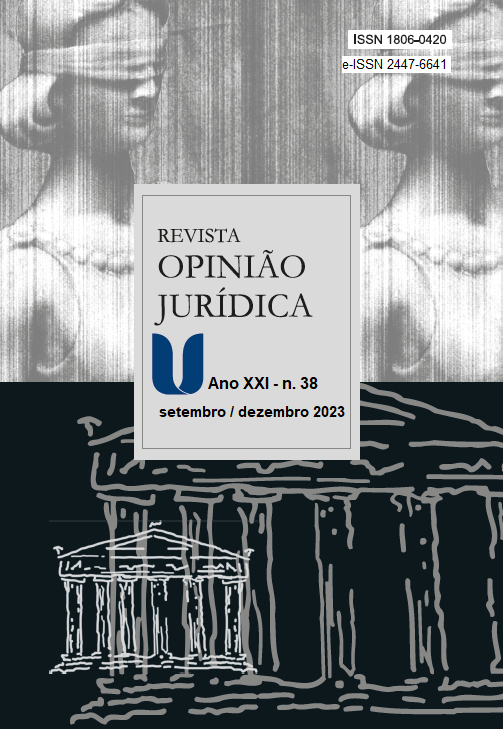EMPRESAS ESTATALES: 05 AÑOS DE LAS NUEVAS REGLAS DE GOBIERNO CORPORATIVO
DOI:
https://doi.org/10.12662/2447-6641oj.v21i38.p1-17.2023Palabras clave:
empresa, estatales, gobierno corporativo, administradores, requisitos e impedimentos legalesResumen
Objetivo: Este artículo pretende abordar el nuevo entorno regulatorio brasileño creado por la Ley de las Estatales (Ley nº 13.303, de 30 de junio de 2016) que creó nuevas reglas de gobierno corporativo en las empresas estatales para la elección de miembros de la junta directiva, del directorio y del consejo de vigilancia, también conocido como inspectores de cuentas, con el objeto de proteger a la empresa pública, a la empresa de capital mixto y a sus subsidiarias (“empresas estatales”) contra posibles (y lamentablemente comunes) injerencias políticas partidarias en la designación de los integrantes de estos cargos directivos de las empresas estatales. El texto también presentará casos de avances, retrocesos y el futuro de este nuevo diploma jurídico brasileño.
Metodologia: Revisión de la bibliografía y análisis de precedentes judiciales y administrativos relacionados con la aplicación de nuevas reglas de gobierno corporativo para las empresas estatales.
Resultados: Es posible concluir que las nuevas reglas de gobierno corporativo fueron creadas por la Ley nº 13.303, de 30 de junio de 2016, con el objetivo de proteger a las empresas estatales contra posibles (y lamentablemente comunes) injerencias de los partidos políticos en la designación de miembros de los cargos directivos.
Contribuciones: De los resultados encontrados, es posible verificar: (a) Uno de los aspectos más relevantes de la Ley N° 13.303, de 30 de junio de 2016, fue la creación de experiencia académica, experiencia profesional y profesionalización para cargos en la administración de empresas estatales, como es costumbre en el sector privado. (b) que la Comisión Nacional del Mercado de Valores (CVM) determinó la aplicación de las nuevas reglas de gobierno corporativo para las empresas estatales; (c) el Poder Judicial, especialmente el Supremo Tribunal Federal, puede hacer una contribución relevante si decide aplicar estas nuevas reglas de gobierno corporativo, a fin de mitigar la injerencia de los partidos políticos en la designación de miembros de los cargos directivos de las empresas estatales .
Descargas
Publicado
Cómo citar
Número
Sección
Licencia
Derechos de autor 2023 Revista Opinião Jurídica (Fortaleza)

Esta obra está bajo una licencia internacional Creative Commons Atribución-NoComercial-CompartirIgual 4.0.
La sumisión de artículos para publicación en Opinião Jurídica implica en la transferencia de los derechos autorales por el autor al Centro Universitário Christus – UNICHRISTUS para reproducción, publicidad, distribución, impresión y publicación, de acuerdo con la Norma de Publicación 414R, Opin. Jur., Fortaleza, año 12, n. 6, p. 1-414, Ene./Dic. 2014, costas a cargo de UNICHRISTUS, en cualquier formato o medio existente o que venga a existir, de acuerdo con los artículos 49 y siguientes de la ley federal 9.610/98.
1. Al ceder los derechos autorales, el autor accepta hacerlo de manera exclusiva, gratuita y por la totalidad del trabajo.
2. UNICHRISTUS puede disponibilizar el trabajo, en parte o en todo, para propósitos educativos, sin alterar su contenido, a la excepción de pequeñas correcciones que sean necesarias.
3. La cesión de los derechos autorales es válida en todos los países y para versiones del material en su idioma original y en versiones traducidas.
RESPONSABILIDAD POR EL CONTENIDO
Al someter un artículo, el autor declara tener la sola responsabilidad por el contenido del trabajo, siendo, por lo tanto, responsable por cualesquiera medidas judiciales o extrajudiciales referentes a él.
1. En caso de autoría conjunta, todos los autores son considerados colectivamente responsables, excepto cuando haya pruebas en contrario.



















